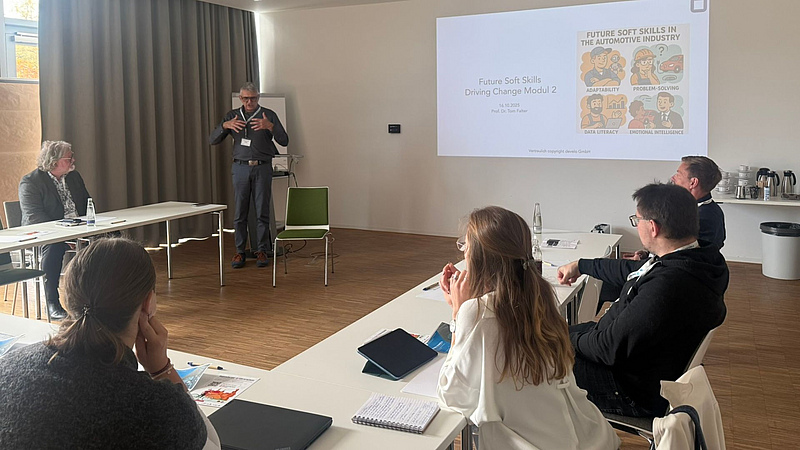On October 16, 2025, Module 2 of the Driving Change II series on the topic of “Future Soft Skills” took place at TechBase Regensburg. The event focused on the development of essential social and general skills for change in the automotive industry.
The central question of the workshop was: Which skills ensure success in change?
The workshop emphasized that successful change depends heavily on willingness to change and interdisciplinary cooperation. Future soft skills, in particular analytical thinking and resilience, flexibility, and agility, have also been identified as top core skills by the WEF. The basis for developing these skills lies in distinguishing between ability (skills) and willingness (values). The job fit model shows that only the fit between skills (skill fit) and motivation/values (energy fit) leads to performance and flow.
The conclusion of the workshop: personalized learning concepts are key!
The decisive key to closing skills gaps lies in the use of personalized training concepts. These must be tailored to the individual knowledge level, values, and mindset of the employees. To achieve this, learning must transition from conventional knowledge transfer to regenerative learning. Regenerative learning is an energy booster and is characterized by immediate benefits, job fit, and meaning. AI-supported, action- and results-focused micro-learning is essential for this, as it enables a high degree of personalization.
Finally, we would like to thank the module's speaker, Prof. Dr. Thomas Falter (OTH Regensburg), for his expert input and practical insight into the necessary soft skills.
Note
The event was part of the German government's transformation networks (funding body: Federal Ministry for Economic Affairs and Energy, BMWE). The Regensburg-based project transform.r supports companies in coping with structural change in the automotive industry.



